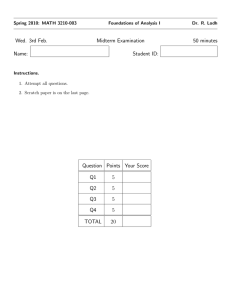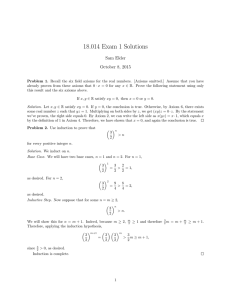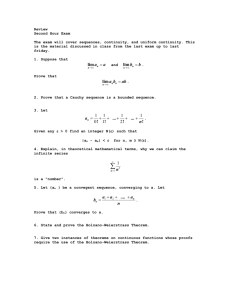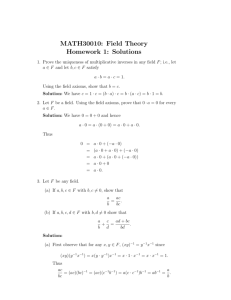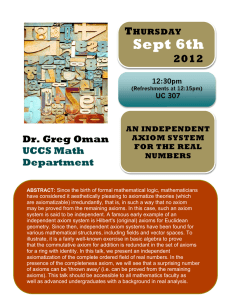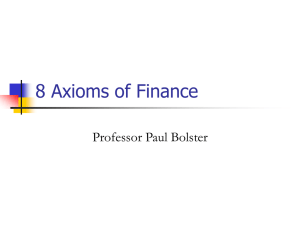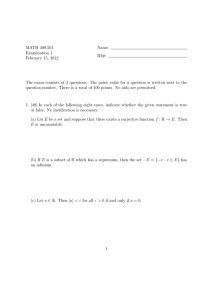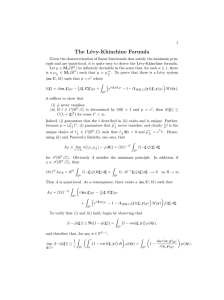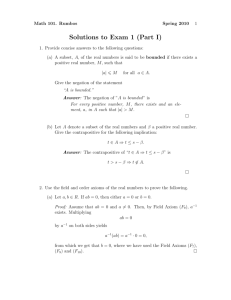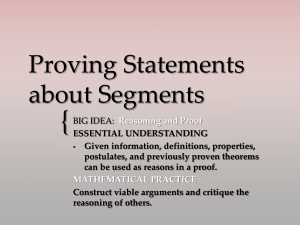18.014 Exam 1 Page 1 of 4 Oct 2, 2015
advertisement
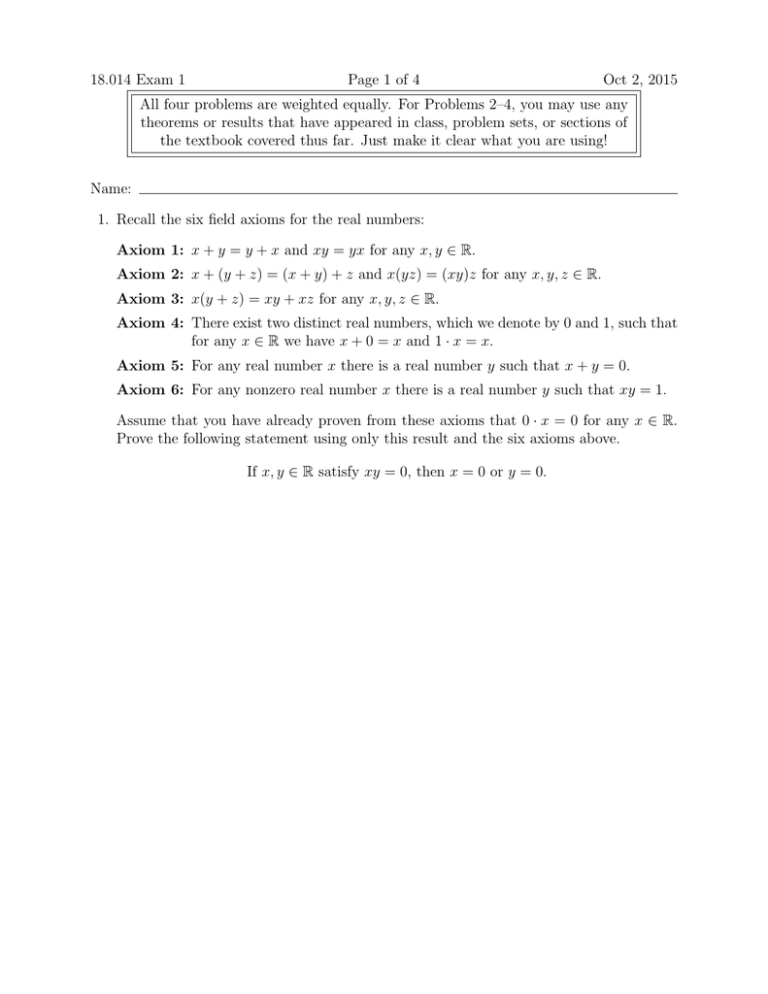
18.014 Exam 1
Page 1 of 4
Oct 2, 2015
All four problems are weighted equally. For Problems 2–4, you may use any
theorems or results that have appeared in class, problem sets, or sections of
the textbook covered thus far. Just make it clear what you are using!
Name:
1. Recall the six field axioms for the real numbers:
Axiom 1: x + y = y + x and xy = yx for any x, y ∈ R.
Axiom 2: x + (y + z) = (x + y) + z and x(yz) = (xy)z for any x, y, z ∈ R.
Axiom 3: x(y + z) = xy + xz for any x, y, z ∈ R.
Axiom 4: There exist two distinct real numbers, which we denote by 0 and 1, such that
for any x ∈ R we have x + 0 = x and 1 · x = x.
Axiom 5: For any real number x there is a real number y such that x + y = 0.
Axiom 6: For any nonzero real number x there is a real number y such that xy = 1.
Assume that you have already proven from these axioms that 0 · x = 0 for any x ∈ R.
Prove the following statement using only this result and the six axioms above.
If x, y ∈ R satisfy xy = 0, then x = 0 or y = 0.
18.014 Exam 1
2. Use induction to prove that
for every positive integer n.
Page 2 of 4
n
3
>n
2
Oct 2, 2015
18.014 Exam 1
Page 3 of 4
Oct 2, 2015
3. For each of the following statements, S is a nonempty subset of the reals that is bounded
both above and below. Circle either T or F to indicate whether each statement is true
or false. You do not need to justify your answers.
T
F
1. If every element of S is less than 1, then sup S is less than 1.
T
F
2. If inf S < x < sup S, then x ∈ S.
T
F
3. If every element of S is an integer, then sup S is an integer.
T
F
4. Let T = {x2 | x ∈ S} be the set of squares of elements of S. Then
sup T = (sup S)2 .
T
F
5. If sup S = 3, then there exists x ∈ S with 2.9 < x ≤ 3.
T
F
6. If max S exists, then sup S = max S.
18.014 Exam 1
Page 4 of 4
4. Define a function f : [10, 40] → R by f (x) = x1 .
(a) Prove that f is integrable.
(b) Prove that
1
≤
2
Z
20
f (x)dx ≤ 1.
10
(c) Prove that
Z
40
f (x)dx ≤ 2.
1≤
10
Oct 2, 2015
